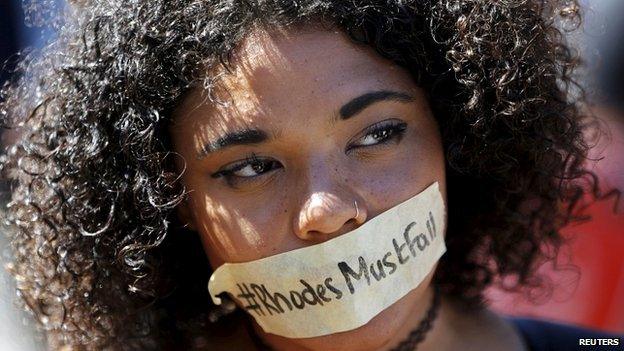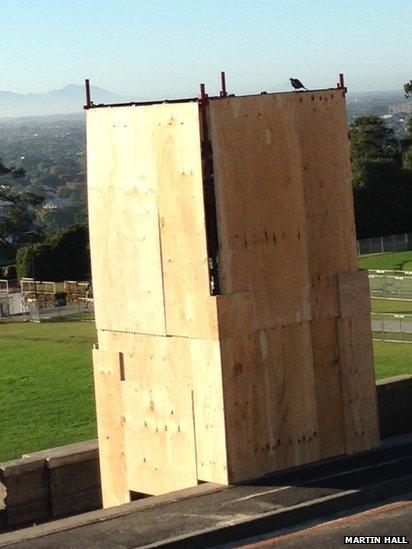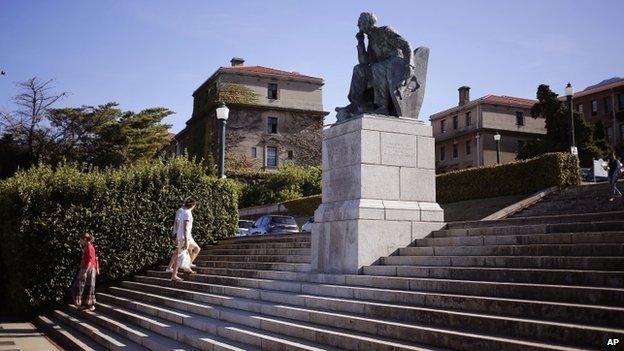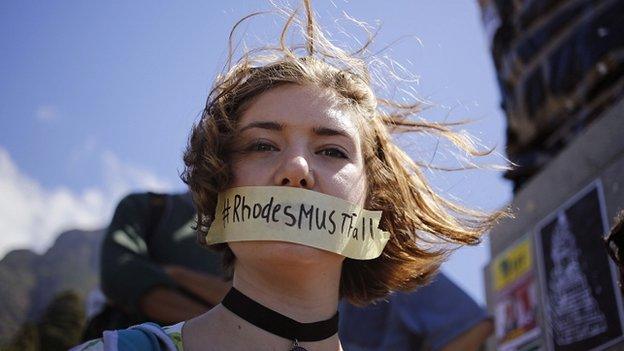South Africa university boards up statue of Cecil Rhodes
- Published

The Rhodes Must Fall campaign saw the statue as a symbol of a lack of change in South Africa
A colonial-era statue of Cecil Rhodes on a South African university campus has been boarded up after student protesters demanded its removal.
The statue at the University of Cape Town had been attacked as a surviving symbol of white minority rule.
The university's vice-chancellor has backed calls to move the statue and says a final decision will be brought forward to a special meeting next week.
Student leaders have hailed a "victory" for their Rhodes Must Fall campaign.
Vice-chancellor Max Price has said the university's senate accepted calls for the statue to be permanently removed from the campus and that it should be boarded up until a final decision was reached.
Symbolic struggle
With more than 180 votes in the senate, only one voted against the statue's removal and there were three abstentions.

The statue of Cecil Rhodes has been boarded up by university authorities
A meeting of the university's council to decide the statue's fate is being brought forward to next week, said a statement from Dr Price - and there will need to be consultations with local heritage authorities.
The statue of Cecil Rhodes has become part of a symbolic struggle at the University of Cape Town, one of the the highest ranking universities in Africa in international league tables.
Rhodes, a British politician and business magnate who died in 1902, was a powerful figure in colonial South Africa, and his statue has remained on the campus of this high-profile university.
But earlier this month, the statue was attacked by a protester who tipped a bucket of human excrement over the figure of Rhodes.
Lack of change
It began several weeks of protest by students who saw the statue as representing the lack of opportunities still facing the black majority two decades after the end of apartheid.
It sparked arguments about how modern South Africa should represent the legacy of its colonial and apartheid-era past.

The statue was attacked with a bucket of excrement earlier this month
There have also been debates about access for black students to top universities.
The statue had been wrapped in black plastic to protect it, but it has now been entirely boarded up.
"It is certainly a victory for us," said Ramabina Mahapa, president of the student representative council.
- Published25 March 2015
